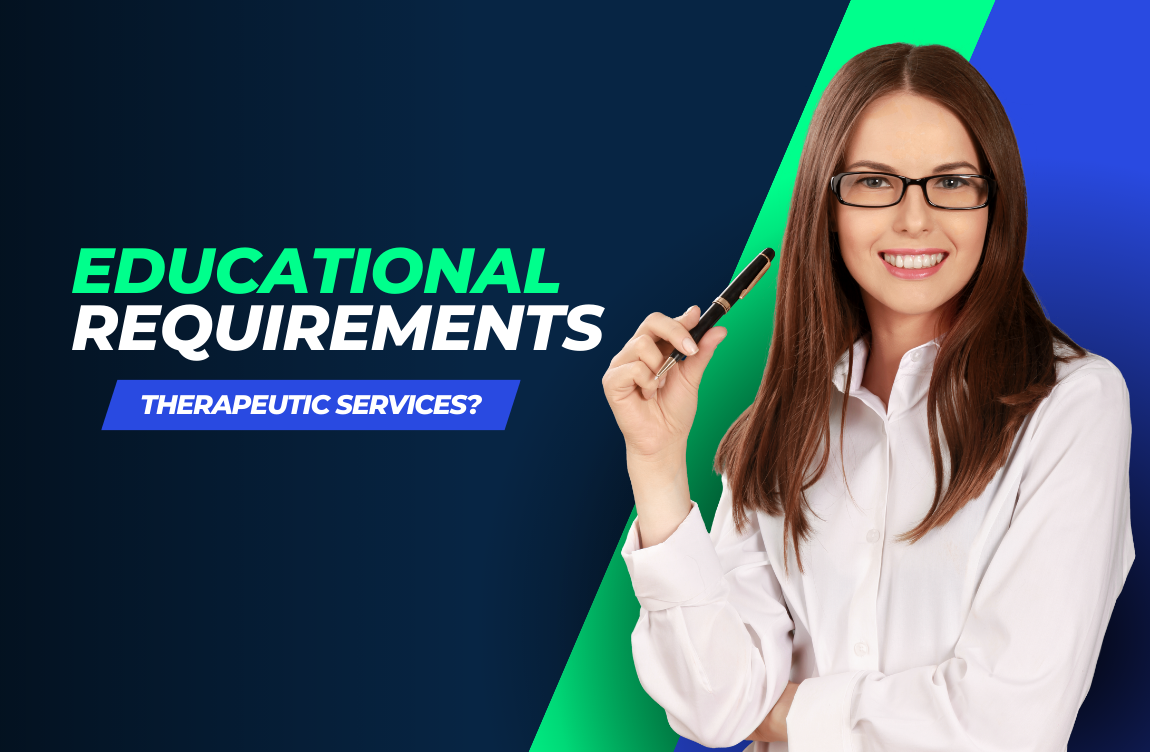
Which Educational Requirements Matter for a Career in Therapeutic Services?
If you’re considering a career in therapeutic services, you’re stepping into a field that plays a pivotal role in enhancing the well-being of individuals. Whether you’re interested in becoming an administrative assistant in a healthcare setting, navigating inclusion for students with disabilities, or tailoring marketing strategies for diverse learning needs, the right educational foundation is crucial. In this article, we’ll delve into the educational requirements that matter most for different facets of therapeutic services. We’ll explore the importance of Right Administrative Assistant Education, the complexities of inclusion for Students with Disabilities, and the power of Marketing for Different Learning needs.
Understanding Right Administrative Assistant Education
Defining the Role
An administrative assistant in the healthcare sector holds a significant responsibility in ensuring smooth operations within a medical facility. From managing appointments and patient records to assisting medical staff, the role demands a blend of organizational skills, medical knowledge, and effective communication.
Educational Prerequisites
- Formal Medical Training: While a specific medical degree might not be required, a foundational understanding of medical terminology and procedures can be immensely beneficial. This knowledge enables administrative assistants to interact more effectively with medical staff and understand patient needs.
- Healthcare Administration Courses: Pursuing courses in healthcare administration equips individuals with the necessary knowledge to handle medical records, insurance claims, and compliance requirements. These courses can be offered by vocational schools, community colleges, or online platforms.
Navigating Inclusion for Students with Disabilities
Defining Inclusion
Inclusion in education refers to providing students with disabilities equal opportunities to participate in mainstream classrooms and educational activities. It’s a concept that promotes diversity and respects the unique needs of every student.
Educational Considerations
- Special Education Background: Teachers and educators aiming to foster inclusive classrooms often pursue specialized training in special education. This equips them with techniques to address diverse learning needs effectively.
- Collaborative Workshops: Professionals working with students with disabilities benefit from workshops that focus on collaboration between special education teachers, general educators, and support staff. These workshops emphasize teamwork and effective strategies.
- Individualized Education Plans (IEPs): Understanding how to create and implement IEPs is crucial. These personalized plans outline goals, accommodations, and strategies to support students with disabilities in achieving academic success.
The Power of Personalization: Tailoring Marketing for Different Learning Needs
Defining Personalized Marketing
Personalized marketing in education involves tailoring educational materials, approaches, and strategies to accommodate diverse learning styles and preferences. This approach acknowledges that each learner has unique needs and optimizes their learning experience.
Educational Foundations
Psychology of Learning: Educators who delve into the psychology of learning gain insights into cognitive processes, memory retention, and motivation. This knowledge helps in crafting effective and engaging learning experiences.
Adaptive Learning Technology: Familiarity with adaptive learning platforms and tools allows educators to create personalized learning paths for students. These technologies adjust the content and pace based on individual progress.
Pros and Cons of Pursuing Therapeutic Services Education
Pros:
- Rewarding Career: A career in therapeutic services is incredibly rewarding. You have the opportunity to make a positive impact on individuals’ lives, whether it’s through healthcare administration, inclusive education, or personalized learning approaches.
Cons:
- Challenges in Inclusion: Navigating inclusion for students with disabilities can be challenging. It requires continuous learning and adaptation to ensure that each student’s needs are met effectively.
In Conclusion
The world of therapeutic services offers a diverse array of career paths, each requiring a unique educational foundation. From healthcare administration to inclusive education and personalized learning strategies, the right education equips professionals to excel in their respective fields. As you embark on your journey, remember that continuous learning and adaptation are essential to truly make a difference in the lives of those you serve.
By understanding the importance of Right Administrative Assistant Education, unraveling the complexities of Inclusion for Students with Disabilities, and harnessing the potential of Marketing for Different Learning needs, you’re on a path to becoming a well-rounded professional in the realm of therapeutic services.
Note: This article is for informational purposes only and not a substitute for professional advice. Please consult relevant educational institutions and professionals for accurate guidance.
